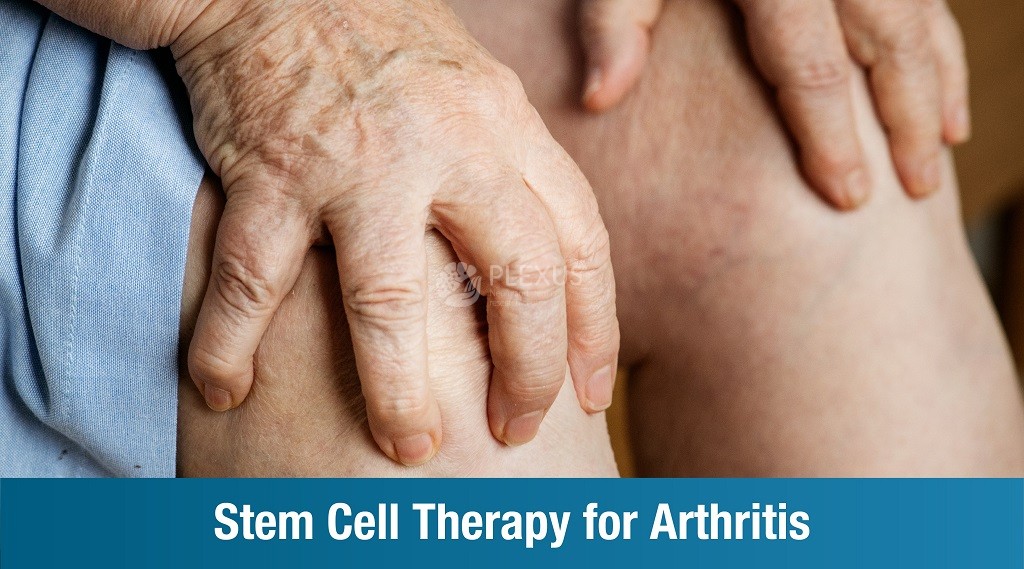
Did you know arthritis is a condition that can affect people of all ages?
Vitamin D deficiency, poor nutrition, and obesity are some of the main triggers of this disease that affect more women than men around the world. Studies have also indicated an alarming increase in the number of children developing arthritis.
What if we told you arthritis can be managed? What if we told you we can help you control the severity of its symptoms?
Stem cell therapy for arthritis is gaining incredible ground. The non-surgical procedure is performed at Plexus Neuro and Stem Cell Research Centre by Dr Na’eem Sadiq, India’s no. 1 stem cell specialist.
Understanding Arthritis
Arthritis is an inflammatory and degenerative disease that affects your joints. It leads to almost complete deterioration of the joints, which causes severe pain and inflammation. Arthritis hinders movement to a great extent. As the disease progresses, and the bones in the joint endure severe wear and tear, patients find it increasingly difficult to perform regular gross and fine motor activities.
The disease is most common in:
- Hips
- Hands
- Feet
- Knees
- Lower back
Causes of Arthritis
Age is regarded as the primary cause of arthritis. Other causes include:
- Family history
- Autoimmune diseases
- Viral infections
- Occupational distress (job/sport that puts continuous pressure on joints)
Additionally, it is important to consider the below triggers of arthritis, before arriving at a conclusive diagnosis:
- Smoking
- Excessive weight/obesity
- Gender (women are more prone to arthritis)
Symptoms of Arthritis
Every type of arthritis has different associated symptoms. The severity of the symptoms may also vary from case to case. We’ve listed the most common symptoms of arthritis below:
- Pain
- Stiffness
- Localised redness around joints and limbs
- Tenderness and warmth in joints and limbs
- Localised swelling
Types of Arthritis
Arthritis is essentially an umbrella term that refers to over 100 types of joint conditions. The most common types of arthritis include:
- Osteoarthritis – It is the most common form of arthritis and is caused by the decline or loss of cartilage in the joints. Click here to read about stem cell therapy for osteoarthritis of the knee.
- Juvenile Arthritis – It corrupts the immune system (in children younger than 16 years) to attack the tissues surrounding joints.
- Psoriatic Arthritis – It is a type of inflammation that develops in patients with psoriasis.
- Rheumatoid Arthritis – It corrupts the immune system by making it attack the synovial membranes present in joints.
- Ankylosing Spondylitis – It affects the back, typically the lower back, and is commonly referred to as arthritis of the spine.
- Gout – It causes the formation of hard crystals of uric acid in joints.
Stem cells and stem cell therapy
Stem cells are undifferentiated progenitor cells. They are capable of self-renewal, provide immunomodulation, and secrete growth factors. Additionally, they can also produce supporting cells that prevent further damage and degeneration.
Our body has incredible self-healing powers. It is capable of protecting the central nervous system against injury and inflammation caused by chronic and degenerative conditions, like arthritis. This is called neuroprotection. Injected stem cells simply remind our body of this power.
Mesenchymal stem cell therapy for Arthritis
Stem cell therapy for arthritis essentially helps regrow the cartilage in the joints to reduce and possibly stop the erosion of bone.
Mesenchymal stem cells (MSCs) are procured from the patient’s bone marrow. Post this, they are cultured in a laboratory where they differentiate into daughter cells. MSCs have the ability to self-renew and differentiate into different types of cells. The daughter cells are injected into the patient’s body, at the sight of inflammation or cartilage damage. These cells then go on to release various regenerative growth factors like platelet derived growth factor (PDGF), vascular endothelial growth factor (VEGF), and fibroblast growth factor (FGF).
As the cells multiply and grow they enable regeneration or growth of supporting tissue and cartilage. Furthermore, they help prevent a hyperactive immune response by reducing the severity of inflammation, and this, in turn, reduces pain, stiffness, and other symptoms associated with arthritis.
To know more about stem cell therapy for arthritis, reach out to us today. Our team of stem cell experts, headed by Dr Na’eem Sadiq, India’s foremost stem cell specialist, will devise a rehabilitation programme to help you manage your symptoms of arthritis.
WhatsApp +91 89048 42087
Call +91 78159 64668 (Hyderabad) | +91 82299 99888 (Bangalore)
FAQs
Can stem cell therapy cure arthritis?
Stem cell therapy can help manage symptoms of arthritis. By reducing pain and inflammation in the joints, individuals can lead a purposeful and pain-free life.
Which stem cells help arthritis?
Mesenchymal stem cells have shown incredible promise in managing arthritis and its related symptoms.
What is the new treatment for arthritis?
Stem cell therapy, which is a type of regenerative medicine, is the newest and most sought-after care programme for managing all types of arthritis.
What is the fastest way to treat arthritis?
Timely diagnosis, supported by a tailored rehabilitation programme can help you manage arthritis.
Can arthritis be fully cured?
Arthritis is a chronic and degenerative condition. The rate of progression can be slowed by effective therapy, regular exercise, anti-inflammatory diet, and medication (if prescribed by a doctor).
Is stem cell therapy available in India?
At Plexus Neuro and Stem Cell Research India, we offer customised stem cell therapy programmes for a variety of diseases and disorders. We are present in Hyderabad and Bangalore. Reach out to us today.
WhatsApp +91 89048 42087
Call +91 78159 64668 (Hyderabad) | +91 82299 99888 (Bangalore)










